If you’ve ever been part of a training project that has gone slightly awry, missed a deadline, or gone over budget, you know how frustrating it can be to watch the same issues rear their heads in subsequent projects.
So, how can you and your training team learn from past mistakes and make improvements going forward?
The Retrospective is a tool used by many project managers to learn what went well and what could have been done better. And there are tons of benefits to be had from making this process a regular part of your training project management.
Get top project management tips from an industry expert in this webinar recording with award-winning eLearning designer, Tim Slade:
An Expert’s Secret Formula for Keeping eLearning Projects On Track and On Budget
What is a Retrospective?
Retrospectives originated from Agile and Scrum project management methodologies. In the Scrum methodology, “Sprints” are blocks of time in which the team endeavors to tick specific items off their list and move closer towards a deliverable product.
At the end of each Sprint, the team will look back on everything that has occurred during the last Sprint and assess how different processes can be improved going forward. This look back is known as a Sprint Retrospective.
While Agile methodologies like Scrum have very specific goals and procedures for conducting a Sprint Retrospective, the concept can easily be applied in a more fluid form to any project management framework.
So, why should you incorporate Retrospectives into your training projects?
1. Greater transparency across the board
Taking the time to look back at how the project went encourages greater transparency across all your projects.
Why? Because the Retrospective should address not just the failures in the project, but the overall performance. That means analyzing:
- What you need to start doing
- What you should keep doing
- What you should stop doing
Plus, the Retrospective should be an opportunity for everyone to speak, voice their opinion, and give their two cents on what went on.
So, whether you choose to conduct Retrospectives at regular intervals throughout your projects or at the end of each individual training project, you’ll soon have a lot more transparency amongst the team and a lot more visibility into the core issues that are knocking your projects off track.
2. Improved collaboration
Since everyone gets to be heard during the Retrospective, it encourages much closer collaboration between the team. This is another good reason to conduct Retrospectives at each iteration in your project rather than just at the end.
Once problems are identified, they can be aired out. So the root cause can be correctly identified and you can avoid repetition of the same mistakes going forward.
This open discussion of the good, the bad, and the ugly encourages a much more honest and constructive collaboration between project team members.
Collaboration over a training project begins right at the moment that the need for training is surfaced. Learn how to manage this more effectively in this free eBook:
Learning Advisory Committees: How to Make L&D a Strategic Pillar in Your Organization

3. Issues are identified and remedied
If you’re experiencing the same project failures repeatedly, Retrospectives can help identify what’s going on underneath the surface that is causing these failures time and again.
Perhaps it’s a planning issue. Or maybe you’re repeatedly going over budget because the budgets just aren’t sufficient or realistic.
Whatever the reason, diving into the depths of project performance during a Retrospective can help to identify those issues so you can remedy them effectively.
Plus, if you do decide to conduct Retrospectives regularly throughout the project, they can help to head off those problems early on and ensure they don’t derail your ongoing training project.
4. Processes are improved
When it comes to process improvement, there’s no better source than those team members who are regularly going through those processes.
That’s why the Retrospective is an invaluable tool for identifying opportunities to streamline your project management processes.
If you’re regularly missing deadlines or certain tasks are taking longer than expected, the Retrospective offers the training project team an opportunity to dig into the process bottlenecks that are creating inefficiencies.
5. Conflict areas are identified and resolved
Keeping a training project on track can create a fairly stressful environment, especially if your project team includes stakeholders for whom the project is an extracurricular responsibility outside of their day to day roles.
There can also be some very strong and conflicting opinions about the direction the project should take, along with decisions around content and assessments.
With a Retrospective, you have the perfect opportunity to iron out these conflicts and reflect on why they occurred in the first place. Again, it’s especially useful if you’re scheduling regular Retrospectives at each iteration of course development throughout the training project.
Working with subject matter experts (SMEs) requires careful planning and effective collaboration. Here’s everything you need to make your SME relationships mutually beneficial:
Toolkit: The Secret Formula for Working with SMEs
6. Accountability and ownership are solidified
One of the most common areas of conflict or disagreement that can arise during a project is “whose responsibility is that?”
When things are slipping through the cracks and you’re watching deadlines and deliverables sail past, it can be frustrating for everyone involved. Not to mention that when one area of the project falls short, it can have repercussions on the rest of the project when one area is dependent on the successful completion of another.
So maintaining a culture of accountability and ownership is essential to keeping everything running smoothly. Conducting regular Retrospective meetings throughout a training project can help keep everyone accountable for their roles and responsibilities.
Training project management can be a tough gig, so it’s important to make sure you’re doing everything you can to make the process as smooth as possible, for yourself and your project team. Retrospectives offer the opportunity for honest feedback, improved processes, and higher project success rates.
Recently, we asked some L&D industry experts what they had to say about project management for instructional design. Here’s what they had to say:
Ask the Experts: Project Management for Instructional Design




